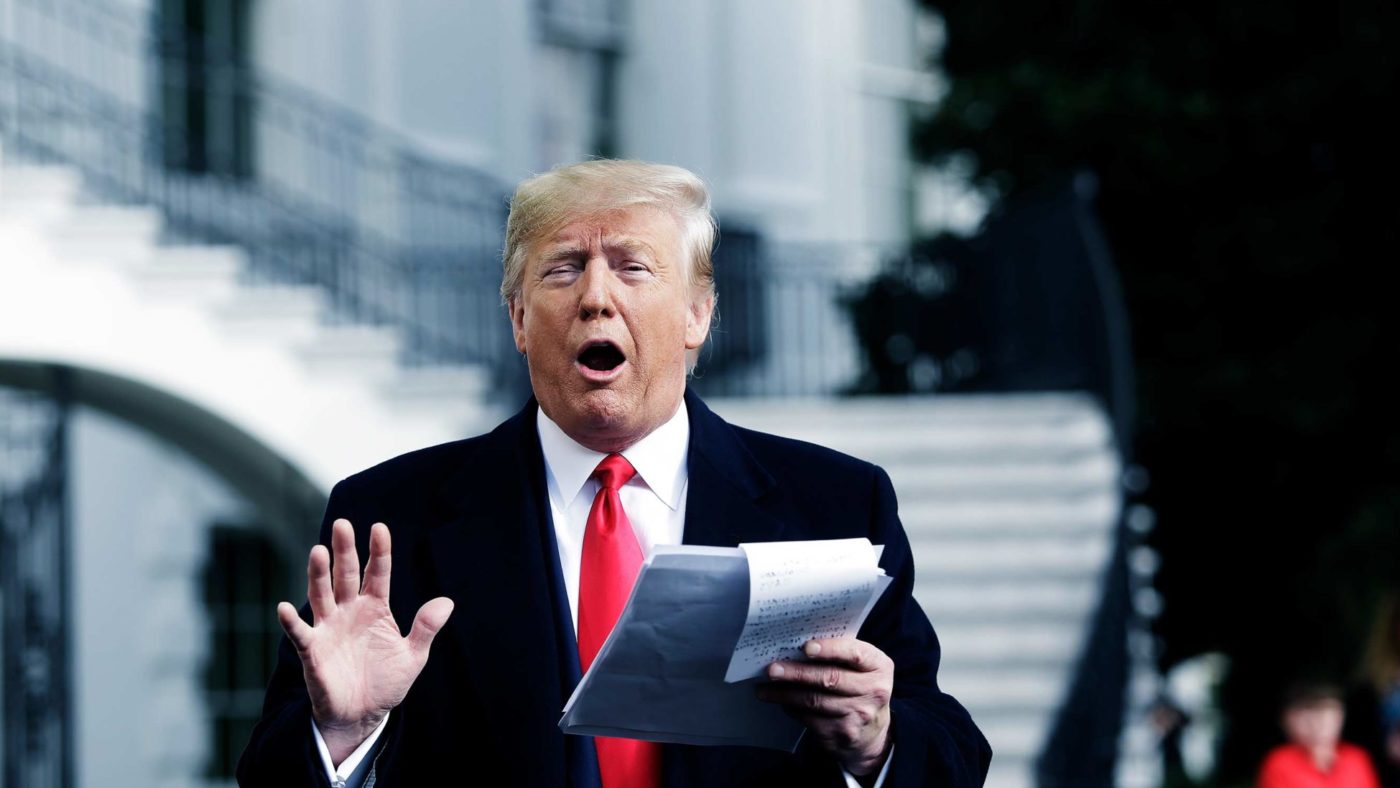Last September, the New York Times published an opinion piece unlike any it had run before. Its anonymous author delivered a bombshell: “Many of the senior officials in [Trump’s] own administration are working diligently from within to frustrate parts of his agenda and his worst inclinations. I would know. I am one of them.”
Fourteen months on, Anonymous is back. Still a “senior official” in the administration, and still involved in “a quiet ‘resistance’ of Trump appointees”, he or she has published A Warning, a much-hyped book that claims to present to the American people behind-the-scenes evidence of Trump’s unfitness for office.
That evidence is certainly damning. The Commander-in-Chief in A Warning is self-obsessed, distracted, irascible, intellectually lazy and paranoid.
Anonymous reveals that Trump proposed designating all undocumented migrants entering the US as “enemy combatants” — the legal category used by the Bush administration for suspected terrorists — and even argued for sending them to Guantanamo Bay. Needless to say, these ideas did not get very far.
On one occasion recounted by Anonymous, Trump barks “What the fuck are you doing?” at an aide scribbling notes in a meeting, worried that he might leak what was said to the press.
“Can we just get rid of judges? Let’s get rid of the fucking judges,” Anonymous reports the President as saying on another occasion, in what sounds more like a moment of exasperation than a serious plan — even if, according to Anonymous, he then asked his legal team to draft a bill to reduce the number of federal judges.
As Anonymous puts it, Trump is “like a 12-year-old in an air traffic control tower, pushing the buttons of government indiscriminately, indifferent to the planes skidding across the runway and the flights frantically diverting away from the airport.”
Even Trump’s most loyal White House advisers cannot deny a certain amount of chaos. The difference is that they see it as an asset. One man’s dysfunction is another’s disruption. “That is the genius of Trump,” Stephen Miller, a hardline senior policy adviser to the President, is reported as saying of the disorder, comparing the President to WWII General George Patton, who said of his reputation for unpredictability, “That’s how I like it”.
A Warning is a catalogue of ineptitude and irrationality. Aides and cabinet members are frequently shocked at the President’s behaviour, and scrambling to limit the damage. Instructions are ignored, alternatives are sought, the flow of information to the Oval Office is controlled.
But little of this is new. Anonymous breaks no meaningful new ground. His or her revelations are mostly anecdotes that add to an already well-established picture built up by countless reports elsewhere — and thanks to a historically leaky White House team.
When Anonymous isn’t filling out his account with already public information or opining on trade policy, he or she is clumsily quoting Theodore Roosevelt or crowbarring in references to Cicero. Indeed, the biggest takeaways from A Warning are that Anonymous does not wear his or her learning lightly and does not appear to be especially senior or close to the President.
And therein lies the problem.
If Anonymous is so central to keeping the President on the straight and narrow, meaning he or she must stay in post, but isn’t able to provide the public with any concrete, vitally important new piece of information about Trump’s White House, why write the book at all?
In fact, A Warning likely frustrates, rather than serves the stated objectives of its author’s continued service. To Trump, the book only confirms his paranoid impulses, likely making the White House still more dysfunctional. To Trump supporters, few of whom will read it, the book will nonetheless be physical evidence of the establishment’s efforts to undermine their man — deepening the divide Anonymous claims to want to bridge.
Conversely, if Anonymous no longer feels that he or she is keeping Trump in check, then wouldn’t a resignation followed by an account of the Trump White House not held back by efforts to conceal the author’s identity be more effective?
The author says he or she has published anonymously “because the debate is not about me. It is about us. It is about how we want the presidency to reflect our country, and that is where the discussion should center… What will he do when there is no person to attack, only an idea?”
But there are no new ideas in A Warning, and Trump doesn’t need to know the author’s name to know that he or she is, in his mind, a traitor.
Anonymous is right to say that “many Americans are struggling to discern truth from fiction.” The truth about the Trump presidency is indeed bitterly contested. But that has little to do with a shortage of available facts. And while A Warning deals in fact, not fiction, it will not get America closer to the truth.
Click here to subscribe to our daily briefing – the best pieces from CapX and across the web.
CapX depends on the generosity of its readers. If you value what we do, please consider making a donation.


